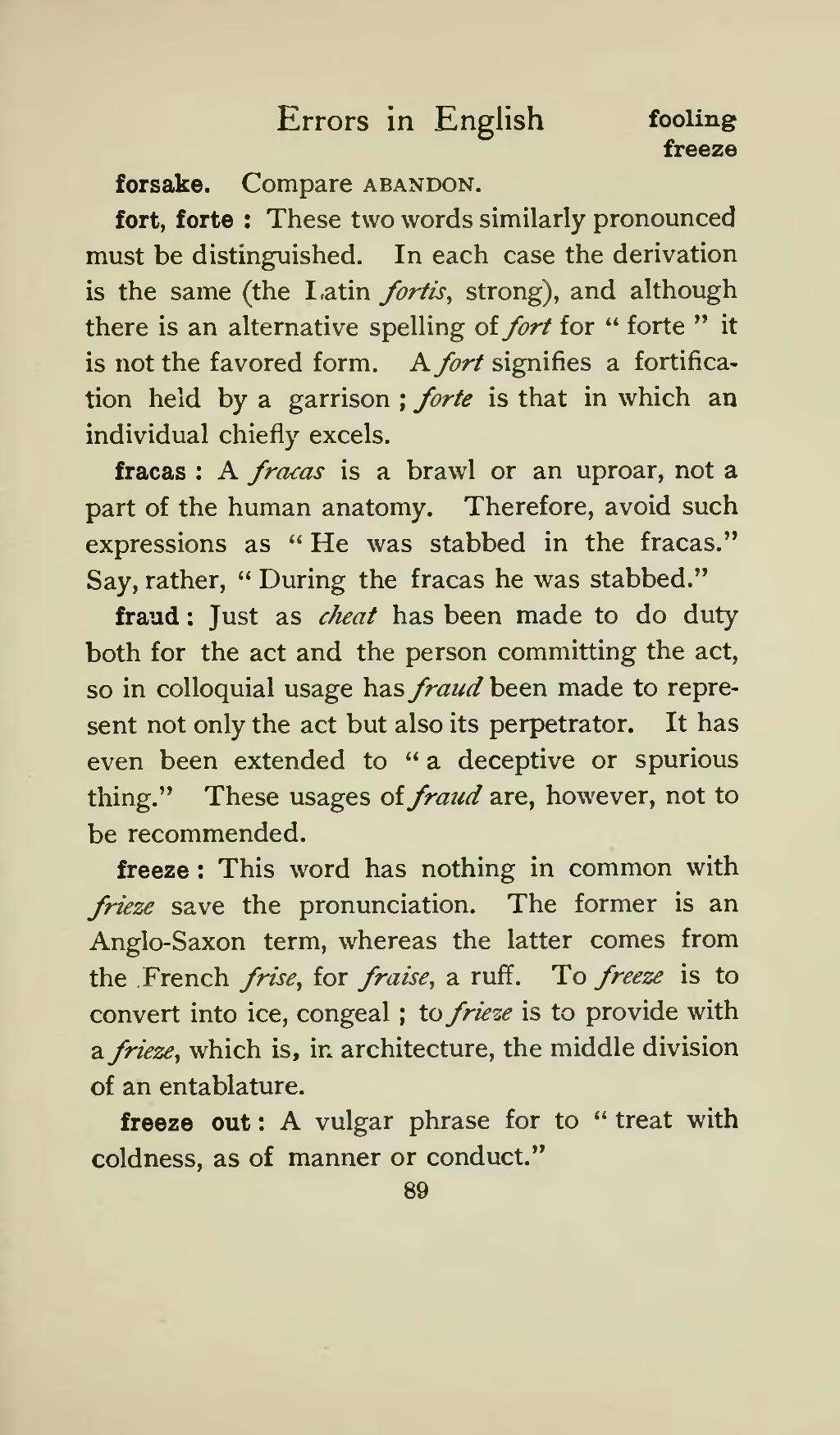freeze
forsake. Compare abandon.
fort, forte: These two words similarly pronounced must be distinguished. In each case the derivation is the same (the Latin fortis, strong), and although there is an alternative spelling or fort for "forte" it is not the favored form. A fort signifies a fortification held by a garrison; forte is that in which an individual chiefly excels.
fracas: A fracas is a brawl or an uproar, not a part of the human anatomy. Therefore, avoid such expressions as "He was stabbed in the fracas." Say, rather, "During the fracas he was stabbed."
fraud: Just as cheat has been made to do duty both for the act and the person committing the act, so in colloquial usage has fraud been made to represent not only the act but also its perpetrator. It has even been extended to "a deceptive or spurious thing." These usages of fraud are, however, not to be recommended.
freeze: This word has nothing in common with frieze save the pronunciation. The former is an Anglo-Saxon term, whereas the latter comes from the French frise, for fraise, a ruff. To freeze is to convert into ice, congeal; to frieze is to provide with a frieze, which is, in architecture, the middle division of an entablature.
freeze out: A vulgar phrase for to "treat with coldness, as of manner or conduct."
89
